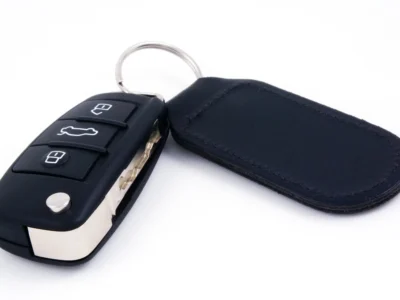
Nissan Juke Common Problems: Causes, Symptoms, and Reliable Fixes

The Nissan Juke is one of those cars that grabs attention immediately — quirky, bold, and unmistakably different. But while its futuristic design and turbocharged punch make it an exciting compact crossover, owning a Juke isn’t always smooth sailing. Over time, several common issues have emerged across its model range, from early 2011 versions to newer trims.
In this comprehensive guide, we dive deep into the most common Nissan Juke problems, their symptoms, causes, and recommended solutions — all in one place. Whether you’re troubleshooting issues or planning to buy a used Juke, this breakdown will help you make informed decisions and avoid expensive repairs.
- Transmission Problems
- Electrical System Faults
- Suspension and Steering Issues
- Cooling System Failures
- Brake System Problems
- Engine-Related Issues
- Turbocharger Malfunctions
- Fuel System Problems
- Air Conditioning and Climate Control Faults
- Interior Electronics and Infotainment Glitches
- Battery and Alternator Issues
- Recalls and Factory Campaigns
- Preventive Maintenance Tips
- Nissan Juke Reliability Overview
- Final Thoughts
- FAQs
Transmission Problems
Symptoms
- Slipping gears or delayed acceleration
- Whining or grinding noises when shifting
- Warning lights on the dashboard (especially CVT-related alerts)
- Fluid leaks under the vehicle
Common Causes
- CVT belt wear due to overheating or lack of maintenance
- Low transmission fluid or incorrect fluid type
- Faulty valve body or solenoids causing erratic shifting
- Software issues in the transmission control module
Solutions
- Perform a CVT fluid replacement every 40,000–60,000 km
- Update or reprogram the TCM (Transmission Control Module)
- Repair or replace the CVT unit if severe wear or metal contamination is found
- Add an auxiliary CVT cooler to prevent overheating in hot climates
Electrical System Faults
Symptoms
- “Check Engine” or warning lights randomly illuminating
- Car fails to start or stalls intermittently
- Electric windows, mirrors, or locks not functioning
- Malfunctioning dashboard lights or infotainment screen
Causes
- Weak or corroded battery terminals
- Faulty alternator or starter motor
- Loose ground connections
- Blown fuses or relays
Fixes
- Test and replace the battery if voltage drops below 12V
- Inspect and clean grounding points under the hood
- Check fuse box integrity and replace any burnt fuses
- Replace alternator or starter as necessary
Suspension and Steering Issues
Typical Symptoms
- Knocking or clunking noise over bumps
- Car pulling to one side
- Steering feels vague or unstable at speed
- Uneven tyre wear
Likely Causes
- Worn shock absorbers or strut mounts
- Damaged control arm bushings
- Misalignment due to pothole impact
- Steering rack wear or fluid leaks
Recommended Fixes
- Replace shocks/struts every 80,000–100,000 km
- Conduct four-wheel alignment regularly
- Inspect ball joints and bushings annually
- Use OEM suspension components for best durability
Cooling System Failures
Warning Signs
- Engine temperature gauge rising above normal
- Sweet-smelling coolant leaks under the car
- Steam or smoke from the bonnet
- Poor heater performance
Root Causes
- Thermostat failure causing coolant blockage
- Leaking radiator or hoses
- Faulty water pump
- Cooling fan not activating properly
How to Fix It
- Replace thermostat every 60,000 km
- Flush and refill coolant biannually
- Inspect radiator and water pump for leaks
- Replace fan relay or motor if non-functional
Brake System Problems
Symptoms
- Squealing or grinding noise when braking
- Pulsating brake pedal
- Brake warning light illuminated
- Increased stopping distance
Causes
- Worn brake pads or discs
- Warped rotors due to heat stress
- Brake fluid leaks
- ABS sensor malfunctions
Solutions
- Replace brake pads/discs every 40,000 km (or sooner if worn)
- Bleed and replace brake fluid every 2 years
- Check for caliper sticking and lubricate pins
- Use OEM-quality rotors to avoid vibrations
Symptoms
- Loss of power or hesitation under acceleration
- Rough idling or misfiring
- Unusual engine noises or vibration
- Check Engine light appearing frequently
Underlying Causes
- Clogged air/fuel filters
- Worn spark plugs or ignition coils
- Faulty oxygen or MAF sensors
- Oil leaks from the valve cover or turbo seals
Fixes
- Replace air, oil, and fuel filters regularly
- Use high-quality synthetic oil (5W-30 or 5W-40)
- Replace spark plugs every 60,000 km
- Repair any oil leaks immediately to avoid engine damage
Turbocharger Malfunctions
Signs
- Whistling or whining noise from the engine
- Loss of boost or poor acceleration
- Blue or black exhaust smoke
- Excessive oil consumption
Main Causes
- Oil starvation due to delayed oil changes
- Cracked turbo hoses or intercooler leaks
- Worn turbo bearings
- Faulty wastegate actuator
Remedies
- Maintain regular oil changes using full synthetic oil
- Replace damaged turbo hoses
- Clean or replace intercooler
- Consider turbo rebuild if shaft play is detected
Fuel System Problems
Symptoms
- Hard starting or poor fuel economy
- Engine stalling
- Fuel odour near the vehicle
- Check Engine light (fuel trim codes)
Causes
- Clogged fuel injectors or fuel filter
- Weak fuel pump
- Vacuum leaks
- Contaminated fuel
Fixes
- Use fuel system cleaner periodically
- Replace fuel filter every 60,000–80,000 km
- Inspect fuel pump pressure
- Ensure tight gas cap to prevent evaporation losses
Air Conditioning and Climate Control Faults
Symptoms
- AC blows warm air
- Foul odour from vents
- Unresponsive climate control buttons
Common Causes
- Low refrigerant due to leaks
- Faulty compressor clutch
- Blocked cabin filter
- Blend door actuator failure
Solutions
- Recharge refrigerant gas
- Replace cabin air filter every 15,000 km
- Inspect compressor clutch operation
- Diagnose HVAC actuators via OBD-II
Interior Electronics and Infotainment Glitches
The Juke’s multimedia systems, particularly on early models, can occasionally freeze or reboot randomly.
Typical Issues
- Bluetooth disconnecting intermittently
- Display freezing or blacking out
- Navigation lag or errors
Fix
- Update the infotainment software
- Replace touchscreen unit if defective
- Disconnect battery for a soft reset
Battery and Alternator Issues
Indicators
- Dim headlights
- Slow engine cranking
- Electrical components malfunctioning
Solutions
- Replace battery every 3–4 years
- Test alternator output regularly
- Keep battery terminals clean and tight
Recalls and Factory Campaigns
| Issue | Recall Year | Models Affected | Description |
|---|---|---|---|
| Transmission (CVT) | 2013 | 2011–2013 Juke | CVT overheating and loss of power |
| Electrical Starter | 2016 | 2014–2015 Juke | Faulty starter relay causing non-start |
| Fuel Pressure Sensor | 2018 | 2015–2017 Juke | Potential fuel leaks at high pressure |
Tip: Always verify open recalls using your VIN on the official Nissan website.
You may be interested in reading Nissan Juke Engine Light: Meaning, Causes, and Fixes
Nissan Juke Engine Light: Meaning, Causes, and FixesPreventive Maintenance Tips
- Change engine oil every 10,000–12,000 km
- Replace CVT fluid before 60,000 km
- Inspect suspension components yearly
- Use genuine Nissan filters and fluids
- Keep software updates current for ECU and TCM
Nissan Juke Reliability Overview
While the Juke offers spirited handling and style, reliability scores vary across model years.
- 2011–2013 models: Most CVT and turbo issues.
- 2014–2017 models: Improved drivetrain but some electrical complaints.
- 2018 onwards: Significantly better dependability with refined CVT tuning.
On the reliability scale, the Juke rates 3.5/5 according to owner surveys, sitting in the middle of its segment. Regular maintenance dramatically improves its long-term performance.
Final Thoughts
The Nissan Juke remains a fun, compact SUV with a personality few others can match. However, knowing its weak spots — especially the CVT transmission, electrical systems, and engine sensors — can save you from unexpected repair bills.
By staying proactive with maintenance, using high-quality fluids, and addressing minor symptoms early, your Juke can remain reliable and enjoyable for years.
You may be interested in reading Nissan Juke Engine Light: Meaning, Causes, and Fixes
Nissan Juke Engine Light: Meaning, Causes, and Fixes Nissan Juke Hybrid Problems: What Every Owner Should Know
Nissan Juke Hybrid Problems: What Every Owner Should KnowFAQs
1. What year Nissan Juke has the most problems?
Models from 2011 to 2013 experienced the most issues, mainly with CVT transmissions and turbochargers.
2. How long does the Nissan Juke CVT last?
With regular maintenance and fluid changes, the Juke’s CVT can last around 100,000–150,000 km.
3. Why does my Nissan Juke lose power suddenly?
Power loss often stems from turbocharger failure, fuel system blockage, or CVT overheating.
4. How can I prevent transmission problems in my Juke?
Replace CVT fluid at proper intervals and avoid aggressive driving that overheats the system.
 Nissan Juke Engine Light: Meaning, Causes, and Fixes
Nissan Juke Engine Light: Meaning, Causes, and Fixes Nissan Juke Hybrid Problems: What Every Owner Should Know
Nissan Juke Hybrid Problems: What Every Owner Should Know Nissan Juke Won’t Start: Common Causes and Expert Fixes
Nissan Juke Won’t Start: Common Causes and Expert Fixes5. Is the Nissan Juke a reliable used car?
Later models (2018 onward) are more dependable, provided maintenance records are consistent.
If you want to know other articles similar to Nissan Juke Common Problems: Causes, Symptoms, and Reliable Fixes you can visit the category Common Problems.
Leave a Reply






More content of your interest